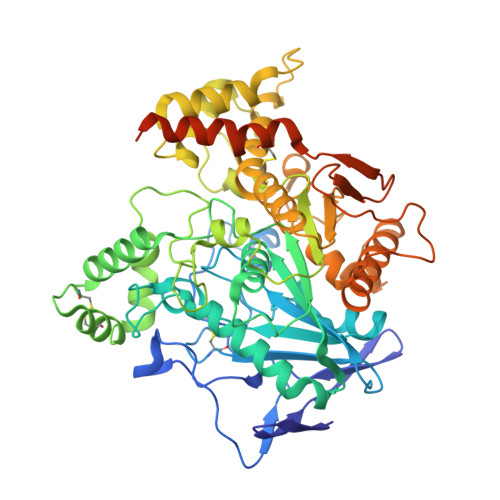Cocrystallization studies of full-length recombinant butyrylcholinesterase (BChE) with cocaine.
Asojo, O.A., Ngamelue, M.N., Homma, K., Lockridge, O.(2011) Acta Crystallogr Sect F Struct Biol Cryst Commun 67: 434-437
- PubMed: 21505234
- DOI: https://doi.org/10.1107/S1744309111004805
- Primary Citation of Related Structures:
3O9M - PubMed Abstract:
Human butyrylcholinesterase (BChE; EC 3.1.1.8) is a 340 kDa tetrameric glycoprotein that is present in human serum at about 5 mg l(-1) and has well documented therapeutic effects on cocaine toxicity. BChE holds promise as a therapeutic that reduces and finally eliminates the rewarding effects of cocaine, thus weaning an addict from the drug. There have been extensive computational studies of cocaine hydrolysis by BChE. Since there are no reported structures of BChE with cocaine or any of the hydrolysis products, full-length monomeric recombinant wild-type BChE was cocrystallized with cocaine. The refined 3 Å resolution structure appears to retain the hydrolysis product benzoic acid in sufficient proximity to form a hydrogen bond to the active-site Ser198.
- Pathology and Microbiology Department, University of Nebraska Medical Center, 986495 Nebraska Medical Center, Omaha, NE 68198-6495, USA. oasojo@unmc.edu
Organizational Affiliation:

















